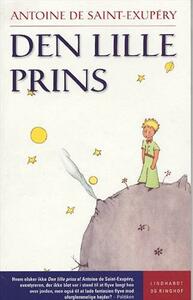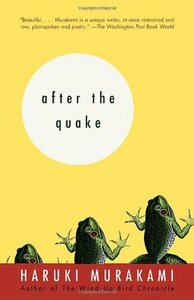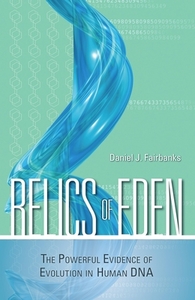Take a photo of a barcode or cover
kevin_shepherd's Reviews (563)
"I know a planet inhabited by a red-faced gentleman. He's never smelled a flower. He's never looked at a star. He's never loved anyone. He's never done anything except add up numbers. And all day long he says over and over, just like you, 'I'm a serious man! I'm a serious man!' And that puffs him up with pride. But he's not a man at all - he's a mushroom!"
There is enough symbolism here for 10 children's books. More to the point, I know plenty of adults that would have a hard time wrapping their brains around the rich allegorical metaphors that spring from these delightfully illustrated pages. How could anyone come away from Le Petit Prince without being moved or touched in some way? "Children's Book" my ass! This is an "Everybody's Book."
There is enough symbolism here for 10 children's books. More to the point, I know plenty of adults that would have a hard time wrapping their brains around the rich allegorical metaphors that spring from these delightfully illustrated pages. How could anyone come away from Le Petit Prince without being moved or touched in some way? "Children's Book" my ass! This is an "Everybody's Book."
"...whilst this planet has gone cycling on according to the fixed law of gravity, from so simple a beginning endless forms most beautiful and most wonderful have been, and are being, evolved."
The challenge of adapting one of the most lauded publications of science into graphic form must have surely given author Michael Keller and illustrator Nicolle Rager Fuller a few sleepless nights. And yet the result, in content and form, is highly commendable.
Whether you're looking for an introduction, an overview, or a supplemental learning experience, this is an entertaining and enlightening place to start. Keller and Fuller augment Darwin's thesis with pictorial representations that add dimension and clarity to complex concepts and biological references. *You SEE Galeopithecus, and the sphinx-moth, and the Thyacinus without having to visualize it (or Google it!).
If there's a knock here it's on the portraiture of the art. Fuller's renditions range from exceptional to adequate, with adequate most often being the historical human characterizations. But this is almost inconsequential to the overall impact of the book, I still enjoyed it immensely!
"With the Origin of Species, we now have a structure in which we may make sense of the natural world. It is a framework for finally unlocking the deepest mysteries of life with the power of our intellect."
The challenge of adapting one of the most lauded publications of science into graphic form must have surely given author Michael Keller and illustrator Nicolle Rager Fuller a few sleepless nights. And yet the result, in content and form, is highly commendable.
Whether you're looking for an introduction, an overview, or a supplemental learning experience, this is an entertaining and enlightening place to start. Keller and Fuller augment Darwin's thesis with pictorial representations that add dimension and clarity to complex concepts and biological references. *You SEE Galeopithecus, and the sphinx-moth, and the Thyacinus without having to visualize it (or Google it!).
If there's a knock here it's on the portraiture of the art. Fuller's renditions range from exceptional to adequate, with adequate most often being the historical human characterizations. But this is almost inconsequential to the overall impact of the book, I still enjoyed it immensely!
"With the Origin of Species, we now have a structure in which we may make sense of the natural world. It is a framework for finally unlocking the deepest mysteries of life with the power of our intellect."
On January 17, 1995 at 05:46 AM, a massive 6.9 earthquake struck the city of Kobe, Japan. 6,434 people lost their lives. Haruki Murakami takes this tragic reminder of the precariousness of life and interweaves it through six different short stories. Each story has its own distinct arc, and Murakami manages to incorporate several different genres (romance, magical reality, comedy, etc.) into this ensemble of loss and perseverance.
This is my second foray into the mind of Murakami and I am hooked. I don't think his meandering narratives are for everyone, but for me he's a proverbial breath of fresh air.
This is my second foray into the mind of Murakami and I am hooked. I don't think his meandering narratives are for everyone, but for me he's a proverbial breath of fresh air.
"Illness is the night-side of life, a more onerous citizenship. Everyone who is born holds dual citizenship, in the kingdom of the well and in the kingdom of the sick. Although we all prefer to use only the good passport, sooner or later each of us is obliged, at least for a spell, to identify ourselves as citizens of that other place."
Sontag's purpose here, in these two essays, is practical. Having her own bout with cancer (boxing metaphor not withstanding) gave her enormous insight. The trappings of equating serious, debilitating illness with superfluous jargon can have very real consequences. For instance, wherein metaphors become myths people can become irrationally fearful and are inhibited from seeking early or effective treatment. Metaphors can imply punishment, or embarrassment, or hopelessness. AIDS, for example, is a disease, not a curse.
Illnesses like tuberculosis and cholera and cancer and HIV have all been stigmatized at some point in time. Historically, cancer diagnosis was sometimes shared with the immediate family but withheld from the patient. An AIDs diagnosis, at the other extreme, was often shared with the patient but withheld from friends and family. For many, this represented a social death that preceded the physical one.
Sontag's point here is crucial, there is plenty for patients to deal with without saddling them with socio-political stigma, or ladling out helpings of guilt and shame.
Sontag's purpose here, in these two essays, is practical. Having her own bout with cancer (boxing metaphor not withstanding) gave her enormous insight. The trappings of equating serious, debilitating illness with superfluous jargon can have very real consequences. For instance, wherein metaphors become myths people can become irrationally fearful and are inhibited from seeking early or effective treatment. Metaphors can imply punishment, or embarrassment, or hopelessness. AIDS, for example, is a disease, not a curse.
Illnesses like tuberculosis and cholera and cancer and HIV have all been stigmatized at some point in time. Historically, cancer diagnosis was sometimes shared with the immediate family but withheld from the patient. An AIDs diagnosis, at the other extreme, was often shared with the patient but withheld from friends and family. For many, this represented a social death that preceded the physical one.
Sontag's point here is crucial, there is plenty for patients to deal with without saddling them with socio-political stigma, or ladling out helpings of guilt and shame.
This was truly macabre, and I mean that in the best possible way. It's a spoof that's not really a spoof at all. Roberto Aguirre-Sacasa and Francesco Francavilla are the gruesome twosome, taking what could have easily been campy-corn, and turning it into a zombie-iffic terror-fest that would make George Romero proud.
Introduction to Physical Anthropology 2011-2012
Wenda Trevathan, Lynn Kilgore, Robert Jurmain, Robert Jurmain
"In the following pages, we will present several phylogenies representing different and opposing views of hominid evolution. We suggest you do not attempt to memorize them, for they all could be out of date by the time you read this book." (pg. 456)
Third Edition, 1985 - Introduction to anthropology, evolution, heredity, genetics, population biology, environmental adaptability, taxonomy, primatology, behavioral ecology - and then the fun starts: Australopithecus afarensis, boisei, robustus, africanus, etc., and then Homo habilis, erectus, neandertalis, sapien, etc.. *Not necessarily in that order.
"...it may seem anthropologists have an almost perverse fascination in finding small scraps buried in the ground and then assigning them confusing numbers and taxonomic labels impossible to remember. We must realize that the collection of all basic fossil data is the foundation of human evolutionary research. Without fossils, our speculations would be completely hollow." (pg. 453)
It's not often I can pull out an old textbook and read it cover to cover (600+ pages) with considerable enthusiasm. Yes, some of the timelines need tweaking, and you'll find no mention of more recent discoveries like Homo floresiensis or Homo luzonensis, but this is still the fascinating and enlightening stuff that made me want to attend college in the first place. NOTE: You will NEVER hear me say that about calculus or macroeconomics.
Third Edition, 1985 - Introduction to anthropology, evolution, heredity, genetics, population biology, environmental adaptability, taxonomy, primatology, behavioral ecology - and then the fun starts: Australopithecus afarensis, boisei, robustus, africanus, etc., and then Homo habilis, erectus, neandertalis, sapien, etc.. *Not necessarily in that order.
"...it may seem anthropologists have an almost perverse fascination in finding small scraps buried in the ground and then assigning them confusing numbers and taxonomic labels impossible to remember. We must realize that the collection of all basic fossil data is the foundation of human evolutionary research. Without fossils, our speculations would be completely hollow." (pg. 453)
It's not often I can pull out an old textbook and read it cover to cover (600+ pages) with considerable enthusiasm. Yes, some of the timelines need tweaking, and you'll find no mention of more recent discoveries like Homo floresiensis or Homo luzonensis, but this is still the fascinating and enlightening stuff that made me want to attend college in the first place. NOTE: You will NEVER hear me say that about calculus or macroeconomics.
"It is no longer possible to sustain scientifically the view that living things did not evolve from earlier forms or that the human species was not produced by the same evolutionary mechanisms that apply to the rest of the living world." ~National Academy of Sciences, 1998
Daniel J. Fairbanks is a distinguished research geneticist and university professor. He is also a self-professed devout christian. To read his rock-solid, no-nonsense presentation of evolution as an irrefutable fact of nature, solidly anchored in biological diversity, fossil evidence, zoological anatomy, and millions and millions of ancestral relics in human DNA, makes my heart sing. He reminds me that nut jobs like Phillip Johnson, cofounder of the intelligent design movement, haven't completely squelched rationality and critical thought in American theology. I am reminded, and Thor knows I NEED reminding now and then, that all is not yet lost.
"In order to defend God against the challenge from evolution, they [the creationists] have had to make Him into a schemer, a trickster, even a charlatan. Their version of God is one who intentionally plants misleading clues beneath our feet and in the heavens themselves. Their version of God is one who has filled the universe with so much bogus evidence that the tools of science can give us nothing more than a phony version of reality. In other words, their God has negated science by rigging the universe with fiction and deception. To embrace that God we must reject science and worship deception itself." ~Kenneth Miller, cellular biologist, Brown University
Daniel J. Fairbanks is a distinguished research geneticist and university professor. He is also a self-professed devout christian. To read his rock-solid, no-nonsense presentation of evolution as an irrefutable fact of nature, solidly anchored in biological diversity, fossil evidence, zoological anatomy, and millions and millions of ancestral relics in human DNA, makes my heart sing. He reminds me that nut jobs like Phillip Johnson, cofounder of the intelligent design movement, haven't completely squelched rationality and critical thought in American theology. I am reminded, and Thor knows I NEED reminding now and then, that all is not yet lost.
"In order to defend God against the challenge from evolution, they [the creationists] have had to make Him into a schemer, a trickster, even a charlatan. Their version of God is one who intentionally plants misleading clues beneath our feet and in the heavens themselves. Their version of God is one who has filled the universe with so much bogus evidence that the tools of science can give us nothing more than a phony version of reality. In other words, their God has negated science by rigging the universe with fiction and deception. To embrace that God we must reject science and worship deception itself." ~Kenneth Miller, cellular biologist, Brown University
Evolutionary Psychology resides at the intersection of Evolutionary Biology and Cognative Psychology, and asserts that both sciences are a unified and coherent enterprise. EP adds a theory of design to traditional psychology by offering Darwinian answers to the "why" questions that have historically been ignored, such as: Why is reciprocity adaptive? Why is PTSD a thing? Why is instinct problematic?
*If you've ever felt the euphoria of finding a dusty, old science textbook at your local used bookstore, and subsequently read it cover-to-cover with zealous enthusiasm, then you need to call me because I'm forming a support group.
*If you've ever felt the euphoria of finding a dusty, old science textbook at your local used bookstore, and subsequently read it cover-to-cover with zealous enthusiasm, then you need to call me because I'm forming a support group.
The broad-backed hippopotamus
Rests on his belly in the mud;
Although he seems so firm to us
He is merely flesh and blood.
Flesh and Blood is weak and frail,
Susceptible to nervous shock;
While the True Church can never fail
For it is based upon a rock.
The hippo's feeble steps may err
In compassing material ends,
While the True Church need never stir
To gather in its dividends.
The 'potamus can never reach
The mango on the mango-tree;
But fruits of pomegranate and peach
Refresh the Church from over sea.
At mating time the hippo's voice
Betrays inflexions hoarse and odd,
But every week we hear rejoice
The Church, at being one with God.
The hippopotamus's day
Is passed in sleep; at night he hunts;
God works in a mysterious way-
The Church can sleep and feed at once.
I saw the 'potamus take wing
Ascending from the damp savannas,
And quiring angels round him sing
The praise of God, in loud hosannas.
Blood of the Lamb shall wash him clean
And him shall heavenly arms enfold,
Among the saints he shall be seen
Performing on a harp of gold.
He shall be washed as white as snow,
By all the martyr'd virgins kist,
While the True Church remains below
Wrapt in the old miasmal mist.
T.S. Eliot, The Hippopotamus
He's no Bob Dylan, but he's okay.
Rests on his belly in the mud;
Although he seems so firm to us
He is merely flesh and blood.
Flesh and Blood is weak and frail,
Susceptible to nervous shock;
While the True Church can never fail
For it is based upon a rock.
The hippo's feeble steps may err
In compassing material ends,
While the True Church need never stir
To gather in its dividends.
The 'potamus can never reach
The mango on the mango-tree;
But fruits of pomegranate and peach
Refresh the Church from over sea.
At mating time the hippo's voice
Betrays inflexions hoarse and odd,
But every week we hear rejoice
The Church, at being one with God.
The hippopotamus's day
Is passed in sleep; at night he hunts;
God works in a mysterious way-
The Church can sleep and feed at once.
I saw the 'potamus take wing
Ascending from the damp savannas,
And quiring angels round him sing
The praise of God, in loud hosannas.
Blood of the Lamb shall wash him clean
And him shall heavenly arms enfold,
Among the saints he shall be seen
Performing on a harp of gold.
He shall be washed as white as snow,
By all the martyr'd virgins kist,
While the True Church remains below
Wrapt in the old miasmal mist.
T.S. Eliot, The Hippopotamus
He's no Bob Dylan, but he's okay.
Universal Horrors: The Studio's Classic Films, 1931-1946
Michael Brunas, John Brunas, Tom Weaver
Never judge a book by it's cover.
No light reading here. This is an in-depth, encyclopedic study of Universal's classic horror films. The authors (Weaver, Brunas & Brunas) are serious film scholars who have cobbled together a tome of information and insight. Casual fans may find its 616 pages of small print a little tedious, but if you're the kind of film buff that just HAS TO KNOW why Tchaikovsky's Swan Lake was chosen to backdrop the opening credits of Dracula in 1931, this is your book!
No light reading here. This is an in-depth, encyclopedic study of Universal's classic horror films. The authors (Weaver, Brunas & Brunas) are serious film scholars who have cobbled together a tome of information and insight. Casual fans may find its 616 pages of small print a little tedious, but if you're the kind of film buff that just HAS TO KNOW why Tchaikovsky's Swan Lake was chosen to backdrop the opening credits of Dracula in 1931, this is your book!









